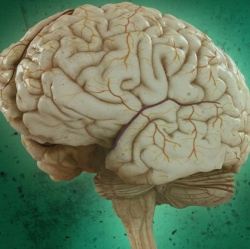
Psilocybin can profoundly alter the way a person experiences the world. It produces changes in mood, sensory perception, time perception, and sense of self.
“Psilocybin-assisted therapy has been shown to be safe in several studies across a variety of patient populations,” explained Kelan Thomas of Touro University California, the corresponding author of the review article.
Generally, psilocybin-assisted therapy involves only a few sessions. Patients receive a dose of psilocybin in a controlled setting while professionals are on hand to provide them with psychological support. The patients also receive counseling before and after each session, to help them prepare for and integrate their psychedelic experience.
“This therapy has also demonstrated large effect sizes for improving symptoms on validated psychiatric rating scales, which suggests psilocybin-assisted therapy may be significantly better than the current treatment options only demonstrating small to moderate effect sizes,” Thomas told PsyPost. “The other important distinction is that participants experienced dramatic improvements and higher remission rates after only a few psilocybin-assisted therapy sessions, which also appeared to persist for a much longer duration than current treatment options.”
Thomas and his two colleagues, Benjamin Malcolm and Dan Lastra, came to this conclusion after reviewing seven clinical trials on psilocybin-assisted therapy. These previous studies were published over the past decade and examined cancer-related anxiety, obsessive-compulsive disorder, depressive disorders, and addiction.
Their review was published online May 8, 2017, in the Journal of Psychoactive Drugs.
“I’m a psychiatric pharmacist and clinical scientist with an interest in the latest innovative therapies to help provide better treatment options for my clients with psychiatric disorders,” Thomas told PsyPost. “I was reading about the psilocybin-assisted therapy clinical trials in the literature and quickly recognized that the effect sizes demonstrated by this novel therapeutic modality were significantly greater than our current standard of therapy for anxiety, depression and substance use disorders. I wanted to provide a useful summary of these clinical trials for mental health clinicians and characterize the therapeutic potential of this innovative medication-assisted therapy.”
The results of the clinical trials were promising. The review found that the use of psilocybin-assisted therapy for depression currently has the strongest clinical evidence, followed by the use of psilocybin-assisted therapy for anxiety. But it is still too early to draw strong conclusions from the research literature.
“The clinical trials summarized were Phase 2 studies investigating safety and efficacy endpoints, but some of the studies were open-label and lacked statistical analysis,” Thomas explained to PsyPost. “Therefore larger and more robust Phase 3 clinical trials will still be necessary to support an FDA approval and help clinicians better determine the appropriate place in therapy for this novel treatment.”
The review also said that psilocybin-assisted therapy appears to have a favorable safety profile. The main side-effects in the clinical trials were hypertension and anxiety, but these symptoms did not persist beyond the experimental sessions.
“This is a very exciting novel treatment strategy that will require more trained therapists, but I am cautiously optimistic that psilocybin-assisted therapy may become a substantially more effective treatment option for my clients with anxiety, depression and substance use disorders,” Thomas said.
